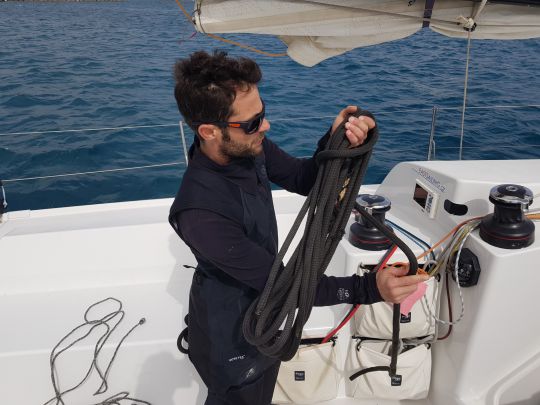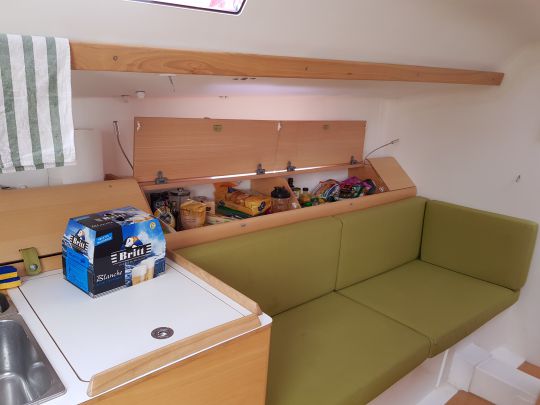During a cruise - and all the more so during a long cruise, such as a transatlantic race, for example - it is good that the skipper and his crew are on the same wavelength. Indeed, they are going to have to sail together, but also to live together. Generally, a transat lasts at least 3 weeks, and it is better to get along well, both on how to sail and on how to live on board, especially in a confined space.
It is not easy to predict in advance whether everyone will get along. In fact, we've already seen very good friendships blur forever during a long crossing, or on the contrary, create beautiful friendships between crew members who hardly knew each other before the start.
Being good company
Being good company means being kind, helpful - but not slave-like - enthusiastic - but not excited - listening and caring. There's no point in discussing unfortunate topics or giving your opinion on any point of view with people you don't know well.
Even though everyone has their own moods, remember that it is not pleasant to be stuck with someone who is always bitching or withdrawn.
Be willing and accommodating
Do not hesitate to express your opinions and desires, but remember that the final decision lies with the skipper. Some crew members are constantly challenging the skipper or questioning his choices by punishing him with a "I told you so...".
Honesty
When sailing with a crew, especially with people you don't know, there's no point in bragging and making up skills or experience. Once at sea, you'll be caught off guard by your lies.
Before leaving, it is important to determine what you expect from this trip, what you would like to do on board and what you would like to learn. Inform the other crew members and your skipper about your sleep requirements, your resistance to seasickness, what you like to eat and how much you will need. This information will help to better organize watches and the pace of sailing.

Rangez?!
When you are on board a boat in a confined space, it is important to keep your belongings tidy and avoid spreading out. Both for others and for oneself. It will be easier to find your belongings, but also the boat's equipment by putting them in their place.
Also find out where you will find the gear/equipment you will need, especially for night sailing. It's always more fun not to wake up your teammates by pointing your headlamp at them in the middle of tête?! On the bridge, learn what each end is for, so that you don't have to play with the light all the time. Favour the use of red lights, which are less aggressive for night vision.

Living it together
On a long cruise, navigation is not the only element to be taken into account. You have to know how to live together and get along, and that starts as much in the galley and in the saloon as in the manoeuvres and the course to follow. Normally, there will be a natural division of roles, because some will feel better preparing meals than trimming the sails on deck.
And don't forget that every role on board has its importance, there is no position more ridiculous than another. It would be a shame to refuse someone on board because of their lack of experience, this one could bring you some hidden talents.
Forget about écrans?!
During night shifts, take the opportunity to chat with your teammate. Away from computer and phone screens, you now have time to talk. The people are interesting and you might learn a few things by interviewing the crew.

Being tolerant
Although we can all be tired or in a bad mood at times, we must be tolerant of others. Responding with anger can lead to a lot of misunderstanding or frustration. It's best to keep your thoughts to yourself and let a little water run under the bridge before attacking others.
If you're really upset, you'll talk about it later in private.
Respect the rules of the road
Each owner or skipper sets rules on board his boat and these rules will have to be taken into account. If you have to wear shoes specially designed for the boat or do not bring any wet oilskins inside, respect that.













